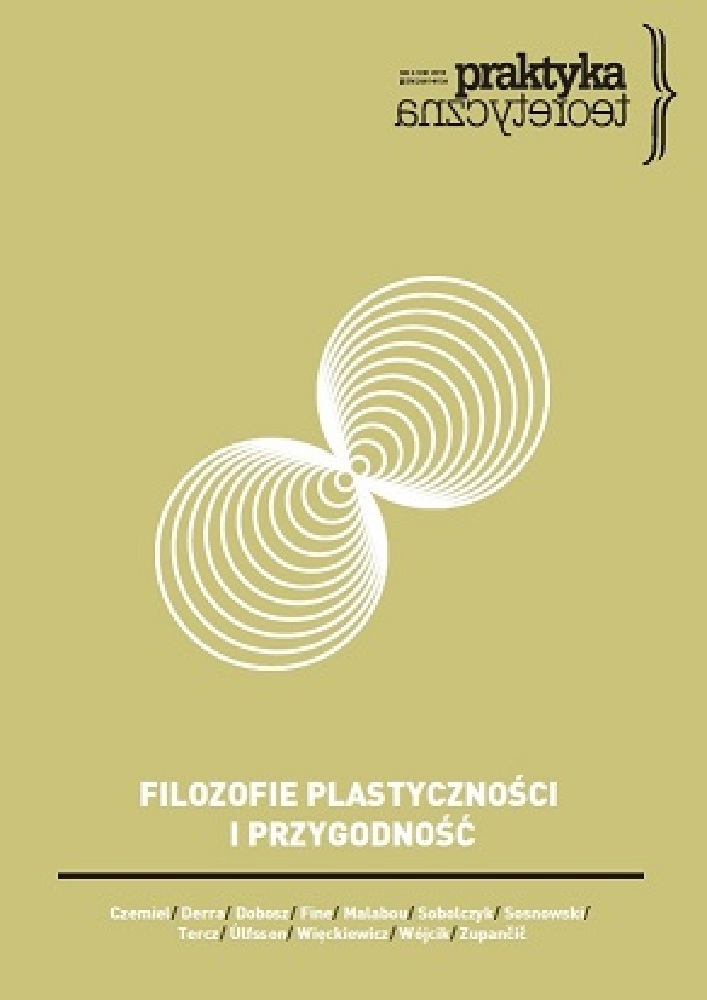Abstract
This text situates Monika Bobako's argument from the book Islamophobia as a technology of power. Study on political anthropology in the context of the increasing interest of the public in xenophobic hatred in recent years. The author reconstructs the methodological perspective employed by Bobako, who combines studies on anti-Semitism with the analysis of western Islamophobia. This allows the philosopher to present Islamophobia as an element of a specific political and social project. The author of the text indicates that Bobako’s study on the aetiology and functions of Islamophobia, understood primarily as a code by which the current (neo-liberal) anxieties of European societies are articulated, remains unique in the context of Polish studies on the subject of anti-Muslim xenophobia.References
Anidjar, Gil. 2013. The Jew, the Arab: A History of the Enemy. Stanford: Stanford University Press.
Bakali, Naved. 2016. Islamophobia. Understanding Anti-Muslim Racism through the Lived Experiences of Muslim Youth. Rotterdam: Sense Publishers.
Bauman, Zygmunt. 1992. Nowoczesność i zagłada. Tłum. Tomasz Kunz. Warszawa: Fundacja Kulturalna Masada.
Bobako, Monika. 2017. Islamofobia jako technologia władzy. Studium z antropologii politycznej. Kraków: Towarzystwo Autorów i Wydawców Prac Naukowych UNIVERSITAS.
Bobako, Monika. 2018. „The Palestinian Knot: The »New Anti-Semitism«, Islamophobia and the Question of Postcolonial Europe”. Theory, Culture & Society, 35(3): 99–120.
Buchowski, Michał. 2016. „Making Anthropology Matter in the Heyday of Islamophobia and the »Refugee Crisis«: The Case of Poland”. Český lid: etnologický časopis (Český lid: Ethnological journal) 103(1): 51–67.
Carr, James. 2015. Experiences of Islamophobia: Living with racism in the neoliberal era. London, New York: Routledge.
Cesari, Jocelyn. 2006. „Introduction: Use of the Term »Islamophobia« in European Societies”. W Securitization and religious Divides in Europe: Muslims in Western Europe after 9/11: Why the term Islamophobia is more a predicament than an explanation. Red. Jocelyn Cesari. Submission to the Changing Landscape of Citizenship and Security 6th PCRD of European Commission: 5–9.
Czyżewski, Marek. 2013. „Teorie dyskursu i dyskursy teorii”. Kultura i Społeczeństwo 2: 3–25.
Erdenir, Burak. 2010. „Islamophobia qua racial discrimination: Muslimophobia”. W Muslims in 21st Century Europe. Structural and Cultural Perspectives. Red. Anna Triandafyllidou. London: Routledge.
Hacking, Ian, 2010. „Wymyślanie ludzi”. Tłum. Anna Stylińska. Kultura Popularna 3(25): 52–65.
Imhoff, Roland i Julia Recker. 2012. „Differentiating Islamophobia: Introducing a new scale to measure islamoprejudice and secular Islam critique”. Political Psychology 33(6): 811–824.
Jackson, Leonie B. 2018, Islamophobia in Britain. The Making of a Muslim Enemy. Cham: Palgrave Macmillan.
Kaplan, Jeffrey. 2006. „Islamophobia in America?: September 11 and Islamophobic Hate Crime”. Terrorism and Political Violence 18 (l): 1–33.
Kowalska, Małgorzata, Małgorzata Jacyno, Kajetan Maria Jaksender i Magdalena Nowicka. 2016. „Pamiętać Foucaulta, zapomnieć Foucaulta. Z prof. Małgorzatą Kowalską, prof. Małgorzatą Jacyno i Kajetanem Marią Jaksenderem rozmawia Magdalena Nowicka”. Przegląd Socjologii Jakościowej 12(1): 16‒30.
http://www.qualitativesociologyreview.org/PL/Volume33/PSJ_12_1_Kowalska_wywiad.pdf (dostęp: 22.06.2018).
Leslie McCall. 2005. „The Complexity of Intersectionality”. Signs: Journal of Women in Culture and Society 30(3) (Spring): 1771–1800.
Maussen, Marcel. 2006. „Anti-Muslim sentiments and mobilization in the Netherlands. Discourse, policies and violence”. Securitization and religious Divides in Europe: Muslims in Western Europe after 9/11: Why the term Islamophobia is more a predicament than an explanation. Red. Jocelyn Cesari. Submission to the Changing Landscape of Citizenship and Security 6th PCRD of European Commission: 100–142.
Morgan, George i Scott Poynting. 2012. Global Islamophobia: Muslims and Moral Panic in the West. Farnham, Burlington: Ashgate Publishing.
Nowicka, Magdalena. 2010. „Głos z zewnątrz w dyskursie publicznym. Przypadek Oriany Fallaci”. Kultura i Społeczeństwo 2: 109–129.
Nowicka-Franczak, Magdalena. 2017. Niechciana debata. Spór o książki Jana Tomasza Grossa. Warszawa: Wydawnictwo Akademickie Sedno.
Ostrowicki, Łukasz. 2009. Mowa o rasizmie. Pojęcie rasizmu we współczesnej polskiej prasie antyfaszystowskiej i skrajnie nacjonalistycznej. Warszawa: Wydawnictwo Trio.
Pratt, Douglas i Rachel Woodlock. 2016. Fear of Muslims?: International Perspectives on Islamophobia. Switzerland: Springer.
Renton, James i Ben Gidley. 2017. Antisemitism and Islamophobia in Europe. A Shared Story? London: Palgrave Macmillan.
Stefaniak, Anna. 2015. Postrzeganie muzułmanów w Polsce: Raport z badania sondażowego. Warszawa: Centrum Badań nad Uprzedzeniami. http://cbu.psychologia.pl/uploads/images/foto/Postrzeganie-muzu%C5%82man%C3%B3w-w-Polsce.pdf (dostęp: 22.06.2018).
Werbner, Pnina. 2013. „Folk devils and racist imaginaries in a global prism: Islamophobia and anti-Semitism in the twenty-first century”. Ethnic and Racial Studies 36(3): 450–467.
License
“Theoretical Practice” seeks to put into practice the idea of open access to knowledge and broadening the domain of the commons. It serves the development of science, thinking and critical reflection. The journal is published in open-access mode under the CC-BY-NC-SA 4.0 license (detail available here: http://creativecommons.org/licenses/by-nc-sa/4.0/). Articles published in the journal may be freely distributed, stored, printed and utilized for academic and teaching purposes without restrictions.
They should not be, however, used for any commercial purposes or be reconstructed into derivative creations. Access to the journal may not be limited or offered for a fee by any third party.
Prospective authors are obliged to fill in, sign and send back the publishing contract compliant with the CC licencing. [PL.pdf, PL.doc, EN.pdf,EN.doc].
According to this contract, authors grant the journal a non-exclusive right to publish their work under the creative commons license (CC-BY-NC-SA 4.0) without any financial obligation on both sides of the contract.
Before submission authors should make sure that derivative materials they use are not protected by copyright preventing their non-commercial publication. Authors are responsible for any respective copyright violations.
